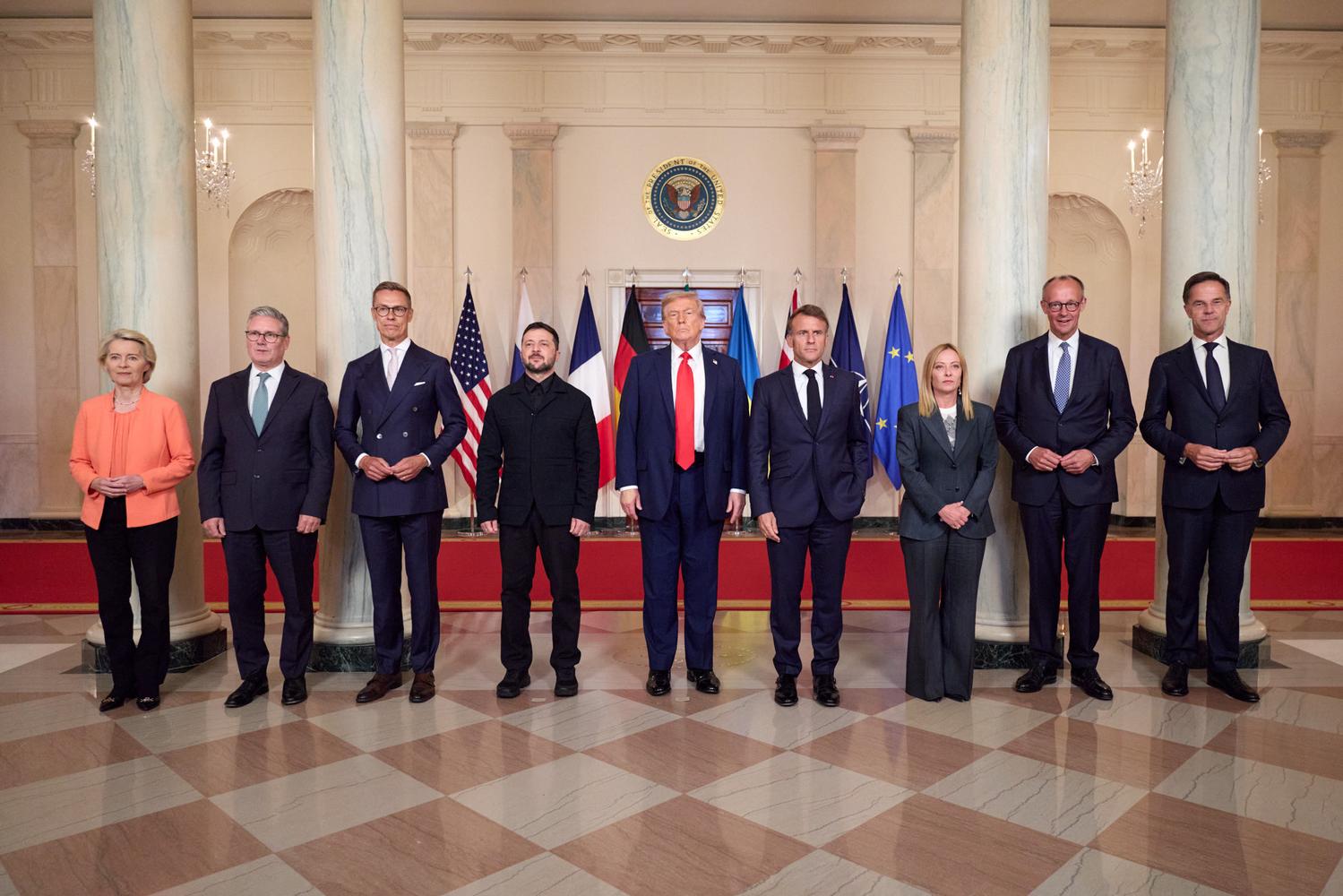Why are European leaders backing Trump’s peace negotiations they think will likely prove unsuccessful?
They want Putin’s unwillingness to genuinely end the Ukraine war exposed.
Five diplomats familiar with the discussions revealed to Politico a calculated approach: praise Trump publicly while privately preparing for the talks to reveal Putin’s true intentions.
“It’s clear that if we end up in a situation where Putin proves he doesn’t want to end the war, that will force Trump to act,” one diplomat explained.
The goal? Stronger sanctions when negotiations inevitably stall.
The French president isn’t buying Putin’s peace promises
Emmanuel Macron has become the most vocal skeptic. The same leader who once tried preventing war through diplomatic outreach to Putin now calls the Russian president’s bluff directly.
“Do I think that President Putin wants peace? The answer is no. If you want my deepest belief: No. Do I think that President Trump wants peace? Yes,” Macron said before heading to Washington. “I don’t think that President Putin wants peace. I think he wants the capitulation of Ukraine. That’s what he has proposed.”
A second diplomat confirmed to Politico that allies support the American initiative “not because they necessarily thought it would work but because it will be a clear test of Russian intentions.”
A third diplomat emphasized that security guarantees being developed would help Ukraine “negotiate from a position of strength.”
Meanwhile, Putin’s negotiating demands include:
-
Ukraine must abandon its plans to join NATO and adopt a neutral status.
-
Lifting or easing of some Western sanctions against Russia, including addressing frozen Russian assets in the West.
-
Recognition of Russian sovereignty over Crimea, annexed in 2014.
-
Ukraine’s withdrawal from Donetsk, Luhansk oblasts, Kherson, and Zaporizhzhia oblasts.
-
Protection and official status for the Russian language in Ukraine.
-
Guarantees for the Russian Orthodox Church Moscow Patriarchate in Ukraine.
-
Disarmament of Ukraine, including establishing limits on personnel, weapons, and armed forces.
-
Holding new elections in Ukraine under martial law lifted after initial troop withdrawals.
What forced Putin to negotiate in the first place?
Sanctions pressure. European sources point to Washington’s tariffs against India over Russian oil purchases as the turning point. Putin agreed to engage with Trump only after feeling economic squeeze.
The next target? China’s trade with Russia.
But here’s the catch: European officials see current talks as preparation for that pressure campaign, not genuine peace prospects.
One diplomat put it bluntly: “Everyone is going through the motions. But we don’t know what Putin’s end game is. What will motivate Putin to give any concessions? I don’t know.”
Where could Putin-Zelenskyy talks actually happen?
Hungary emerges as one possibility for a Putin-Zelenskyy meeting. Macron proposed Geneva as neutral ground. But venue selection assumes the talks will occur. Growing Russian evasiveness suggests otherwise.
Russian Foreign Minister Sergey Lavrov says Moscow won’t reject talks but insists on preparation “step by step, gradually, starting from the expert level.” Putin suggested hosting a summit in Russia.
Trump already doubts Putin’s sincerity
Europeans adjusted their red lines to work with Trump, softening demands for Russian ceasefire commitments before negotiations.
“There was some hope Trump could change his mind back on the ceasefire issue. That didn’t happen,” a fifth diplomat said, expressing concern over the difference in positions. “But overall it was still a good step towards peace.”
But they’re betting on a bigger prize: Trump’s recognition of Putin’s bad faith.
The American president already shows signs of skepticism.
“We’re going to find out about President Putin in the next couple of weeks,” Trump told Fox News. “It’s possible that he doesn’t want to make a deal.”
That admission gives Europeans what they want: justification for the sanctions escalation they’ve planned all along.




